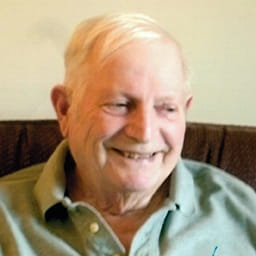The Problem: A Series of Cardiac Events
84-year-old Kenneth Humphrey enjoys being able to do things on his own.
Whether it’s his morning routine, driving his car, or eating a home-cooked meal by his wife, he doesn’t take anything for granted. After all, it wasn’t too long ago that the Greenville, Pa. native wasn't able to do much of anything without feeling sick.
“I don’t remember much of 2017,” Kenneth says. “My wife, Barbara, didn’t know what to do. I was constantly falling over, falling out of bed, and couldn’t remember anything.”
As a business owner and father of three adult sons, Kenneth’s health problems took a toll on his busy life.
His heart issues began roughly 25 years ago when he had his first heart attack. He went to a hospital near his home, where doctors told him he had a small blood vessel partially blocked.
The Path to the UPMC Heart and Vascular Institute for Heart Surgery
Kenneth’s heart problems returned in November 2016 when, while getting dressed one morning, he had extreme trouble breathing.
“I called for Barbara and told her I couldn’t breathe. She called 911, and the ambulance came.”
EMS rushed Kenneth to UPMC Passavant, where doctors told him he had another heart attack.
Kenneth had quintuple bypass surgery by Pyongsoo Yoon, MD, director of cardiac surgery at the Heart and Vascular Institute at UPMC Passavant. Dr. Yoon also implanted a defibrillator and pacemaker and diagnosed Kenneth with functional mitral regurgitation (FMR).
FMR occurs when the left bottom chamber of the heart weakens, often because of a heart attack. This weakening causes the chamber to enlarge, which forces a gap to form at the mitral valve.
Doctors often treat it first by trying to improve the chamber through bypass, stent placement, and medicine.
Over the course of the year following his procedures, Kenneth’s mitral valve problem sent him to the hospital 15 more times. And it brought on diagnoses of congestive heart failure and pneumonia.
As his FMR progressed into early 2018, EMS took Kenneth to UPMC Presbyterian.
Doctors at the UPMC Heart and Vascular Institute there reviewed his medical history. They told him he was now suffering the effects of a leaky mitral valve, brought on by his FMR.
The mitral valve is between the heart’s upper and lower left chambers. It lets blood move through the heart, but sometimes, the valve can become leaky, which causes blood to flow backwards.
Due to the Heart and Vascular Institute’s combined care network, doctors across UPMC can discuss patient care via a secure teleconference line. And they can provide patients with the proper course of treatment, no matter which hospital they're at.
Doctors at UPMC Presbyterian used this system to gather a full sense of Kenneth’s health history and design a treatment plan.
The Solution: The MitraClip® to Treat Functional Mitral Regurgitation
The first attempt at treating Kenneth’s FMR wasn't successful, and doctors deemed him too high risk for another open-heart surgery. So, they approved him to be part of a clinical trial.
The trial studied other treatments for FMR in people who had exhausted all prior treatment options and were still suffering.
Anson J. Conrad Smith, MD, an interventional cardiologist, placed two MitraClips in Kenneth’s heart. These tiny clips, inserted by a catheter during a minimally invasive procedure, work to support the mitral valve and repair damage.
The MitraClip is ideal for people who are too high-risk for open heart surgery, due to age or other factors.
The surgery was a success for Kenneth.
“Dr. Smith kept me in the hospital for four days to make sure the clips were working properly. I haven’t been admitted to the hospital since!” Kenneth says.
The Results: A Renewed Life of Independence
After his successful MitraClip procedure, Kenneth began to return to his healthy self. He went to cardiac rehab in his hometown of Greenville, an asset of the Heart and Vascular Institute’s system-wide integration.
His healthcare team has also helped him with breathing exercises to cope with anxious thoughts and feelings.
Kenneth can see firsthand the positive results of his MitraClip procedure.
“I can do so many things that I hadn’t been able to before. I’m walking without a cane now. I can drive again. I’ve gained the weight back that I lost while I was sick in 2017. I finally have my appetite back. Barbara cooks dinner, and I actually want to eat. I could even mow the lawn and shovel snow if I wanted to. But we moved into an apartment complex, so I don’t have to worry about that!” Kenneth says.
Kenneth has played an integral part in managing his own health from home, as well.
Once a week, he uses an at-home point-of-care device to take his international normalized ratio (INR). INR dictates how well his anticoagulation drug is working. He then calls this number into his doctor, Diana Cantellops, MD, who uses it to adjust his dose.
Kenneth’s care team uses this data to track his heart health, both in the office and at his home.
Kenneth also makes trips back to UPMC Presbyterian for routine testing to check on the condition of his heart.
Knowing that Dr. Cantellops, Dr. Smith, and his PCP work together to support his heart health, brings Kenneth peace of mind.
“I just want to sing the praises of the MitraClip procedure,” Kenneth exclaims. “It has led to a great improvement in my life.”
Kenneth's treatment and results may not be representative of similar cases.
Read more Heart Valve Disease patient stories
















